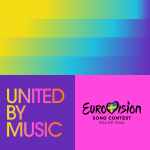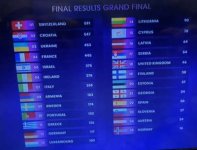Is the Eurovision Song Contest the most insightful window into western society and politics we currently have? As usual, the 2024 show delivered a memorable night of the fun, the bizarre and the weird. It was also highly politically charged as contestants voiced their opposition and disappointment in Israeli singer Eden Golan’s participation, citing the war in Gaza. Opposition got so intense it even lead to a deranged mob which included
Greta Thunberg protesting Golan’s presence at the event. For a contest with the tag line
“United by Music,” this was anything but, and highlighted the sharp disconnect between the general population and those who claim to speak for them.
In the actual contest,
Nemo from Switzerland triumphed ahead of
Baby Lasagna out of Croatia, while
Windows95man from Finland was unfairly maligned for a performance one could describe as brilliant lunacy. Champion Nemo is now hailed as not only a deserving winner, but also the first non-binary Eurovision winner. Good for them.
Eurovision tried to remain neutral but there was no escaping politics and contestant protests against Israel in 2024. This is sad. At its best the Eurovision Song Contest is an eclectic mix of genuine talent, psychedelic fever dreams and obscure cultural references. Frankly, of the three talent is perhaps the least important from an entertainment perspective. Indeed, if you have never watched Eurovision before, I must recommend that you pause reading and bask in the glory of
Wolves of the Sea by Latvia in 2008: this is Eurovision at its finest.
This year, prior to the Grand Finale Saturday, several contestants specifically noted their dismay at Israel advancing to the final, with Ireland’s Bambie Thug saying
they cried upon hearing that Israel had made it. Indeed, many in the live audience
booed loudly in Malmö following
Eden Golan’s “Hurricane” performance as well as nearly any time Israel came up during the show.
So what, can all of this tell us about western society and politics generally?
Well, a very interesting thing happened when it was time to vote for the Eurovision champion. For, while the country juries awarded 365 of their votes to Switzerland — a deserving winner — they barely noted Israel, who garnered just 52. When, however, it came time for the popular vote from the television audience around Europe — which accounts for half the total score — Israel took second place and 323 votes, well ahead of Switzerland’s 226, and vaulted to a 5th place finish.
It was a striking example of the brutal and jarring disconnect between the elect and elite and the general population they govern or exert power over, or claim to speak for. While the story leading into the Eurovision contest was dominated by Israel and the war in Gaza, driven mainly by those who oppose Israel, in the end, and in direct opposition their country juries, nearly every western European television audience
awarded the maximum points to Israel.
Sensible, normal people have no time for Hamas supporters

apple.news



